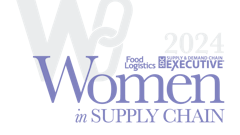Xign said validation reduces invoice exception rates by 77 percent as suppliers learn to consistently submit "clean" invoices
Pleasanton, CA — August 10, 2006 — e-Settlements specialist Xign has released the results of a study showing that its network has successfully helped significantly reduce "dirty" invoice submissions resulting from invalid data, purchase order mismatches or other problems.
In a study on the impact of Xign network validation on invoice exception processing, Xign said that the rate of problem invoice submissions fell from one in every eight invoices during initial deployment (13 percent) to one in every 33 invoices by year three (3 percent), representing a 77 percent reduction in exception invoice rates over this period.
"Dirty" invoices are a leading cause of settlement delays and high processing costs. According to Xign Business Settlement Network (XBSN) statistics, the most common reasons for dirty invoice submissions include:
The Value of Validation
In contrast, Xign said that its network validates the accuracy of invoices before they have propagated into the ERP system for processing. By applying validation rules at the point of invoice submission, dirty invoices can be detected and returned to suppliers for correction and resubmission, according to the solution provider.
With this approach, Xign said, buyers are able to avoid exceptions on 3-13 percent of their invoices, which can cost as much as $20 per invoice to resolve, according to Gartner estimates. Moreover, the marked decline in exception invoice rates shows that over time, suppliers increasingly learn to submit clean invoices up front, thus preventing the delays and high costs associated with resolving dirty invoices, according to Xign.
"Dirty invoices have long plagued accounts payable, causing settlement delays and higher processing costs," said George Fan, Xign vice president of marketing and general manager for supplier services. "Xign network validation repels invoice exceptions before they become problems and, as the study shows, helps suppliers develop the capacity to submit clean invoices the first time through."
Exception avoidance is one of 12 best practice metrics of financial settlement performance that are tracked by Xign's network benchmarking service, Xign Network Insight. These metrics — including cycle time, on-time payment, discount penetration and exception avoidance — form the basis for tracking and benchmarking processing and working capital performance across the Xign Business Settlement Network.
Additional Articles of Interest
— What are the skill sets that will catapult your supply management group to its peak performance? For a guide to help unlock their potential, read "Building a Better Supply Chain Professional" in the April/May 2006 issue of Supply & Demand Chain Executive.
— What do CEOs want from their supply chains, and is Supply Chain delivering? Read more in "The Supply Chain Disconnect," the Executive Memo column in the April/May 2006 issue of Supply & Demand Chain Executive.
Pleasanton, CA — August 10, 2006 — e-Settlements specialist Xign has released the results of a study showing that its network has successfully helped significantly reduce "dirty" invoice submissions resulting from invalid data, purchase order mismatches or other problems.
In a study on the impact of Xign network validation on invoice exception processing, Xign said that the rate of problem invoice submissions fell from one in every eight invoices during initial deployment (13 percent) to one in every 33 invoices by year three (3 percent), representing a 77 percent reduction in exception invoice rates over this period.
"Dirty" invoices are a leading cause of settlement delays and high processing costs. According to Xign Business Settlement Network (XBSN) statistics, the most common reasons for dirty invoice submissions include:
- Invalid or missing data (41 percent);
- Purchase order mismatches (15 percent);
- Price or quantity tolerance conditions (11 percent);
- Duplicate invoices (9 percent);
- Missing required data (4 percent);
- Invalid general ledger account coding (3 percent).
The Value of Validation
In contrast, Xign said that its network validates the accuracy of invoices before they have propagated into the ERP system for processing. By applying validation rules at the point of invoice submission, dirty invoices can be detected and returned to suppliers for correction and resubmission, according to the solution provider.
With this approach, Xign said, buyers are able to avoid exceptions on 3-13 percent of their invoices, which can cost as much as $20 per invoice to resolve, according to Gartner estimates. Moreover, the marked decline in exception invoice rates shows that over time, suppliers increasingly learn to submit clean invoices up front, thus preventing the delays and high costs associated with resolving dirty invoices, according to Xign.
"Dirty invoices have long plagued accounts payable, causing settlement delays and higher processing costs," said George Fan, Xign vice president of marketing and general manager for supplier services. "Xign network validation repels invoice exceptions before they become problems and, as the study shows, helps suppliers develop the capacity to submit clean invoices the first time through."
Exception avoidance is one of 12 best practice metrics of financial settlement performance that are tracked by Xign's network benchmarking service, Xign Network Insight. These metrics — including cycle time, on-time payment, discount penetration and exception avoidance — form the basis for tracking and benchmarking processing and working capital performance across the Xign Business Settlement Network.
Additional Articles of Interest
— What are the skill sets that will catapult your supply management group to its peak performance? For a guide to help unlock their potential, read "Building a Better Supply Chain Professional" in the April/May 2006 issue of Supply & Demand Chain Executive.
— What do CEOs want from their supply chains, and is Supply Chain delivering? Read more in "The Supply Chain Disconnect," the Executive Memo column in the April/May 2006 issue of Supply & Demand Chain Executive.
- More articles about Xign.


























